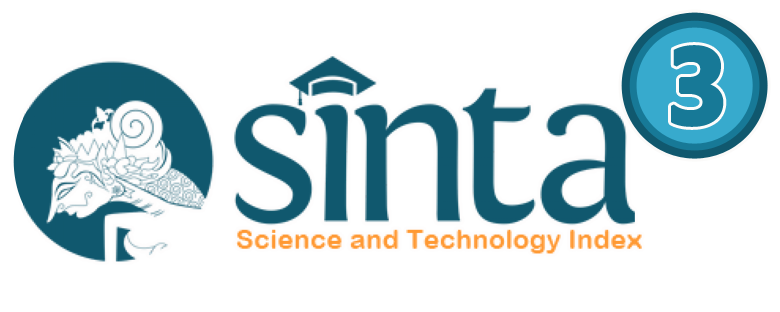Panca Jiwa Pondok and Contemporary Psychology: A Comparative Review for Contextual Islamic Psychology
DOI:
https://doi.org/10.18326/ijip.v7i2.4998Keywords:
Panca Jiwa Pondok, Islamic Psychology, local values, Islamic boarding schools, modern psychology theory.Abstract
One of the most essential values in the Islamic boarding school education system is the concept of the Panca Jiwa Pondok that was developed by Imam Zarkasyi in the Gontor Boarding School. These values serve as a guideline for students' lives and reflect the richness of local wisdom that can be developed within the scientific framework of Islamic Psychology. This article aims to critically examine the relevance of the five values of the Panca Jiwa Pondok to modern psychological theories such as Logotherapy, Self-Determination Theory, Positive Psychology, Attachment Theory, and Existential Psychology. This article analyzes the academic literature from indexed journals in the last ten years through the qualitative literature study method. It relates it to Qur'anic verses and Hadith as the primary normative sources. The study results show a strong wedge of meaning between Islamic values that live in Islamic boarding schools and fundamental concepts in modern psychology. The integration between the local values of Islamic boarding schools, Islamic teachings, and contemporary psychological theories has the potential to strengthen the construction of Islamic Psychology that is more contextual and relevant in answering the educational needs and spiritual mental development of students in the contemporary era. This study emphasizes the urgency of developing Islamic Psychology that is not only normative but also rooted in the social and cultural reality of the ummah.
References
S. Kitayama and C. E. Salvador, “Cultural Psychology: Beyond East and West,” Annu. Rev. Psychol., vol. 75, no. 1, pp. 495–526, 2024, doi: 10.1146/annurev-psych-021723-063333.
N. Iqbal and R. Skinner, “Islamic psychology: Emergence and current challenges,” Arch. Psychol. Relig., vol. 43, no. 1, pp. 65–77, 2021, doi: 10.1177/0084672420983496.
M. F. Harun and M. M. Taib, “‘Putting An Islamic Scholar’s Hat on Psychologist ’: A Framework for Integrating Islamic Concepts into Psychological Research,” Asian J. Islam. Psychol., vol. 2, no. 1, pp. 1–17, 2025, doi: 10.23917/ajip.v2i1.7812.
S. Sridadi, “Model Kepemimpinan Kiai Dalam Pembentukan Karakter Santri (Studi Kasus di Pondok Pesantren Al-Islam Surakarta ),” Universitas Islam Negeri Raden Mas Said Surakarta Surakarta, 2022. [Online]. Available: https://journals.upi-yai.ac.id/index.php/IKRAITH-EKONOMIKA
K. Alfath, “Pendidikan Karakter Disiplin Santri Di Pondok Pesantren Al-Fatah Temboro,” Al-Manar, vol. 9, no. 1, pp. 125–164, 2020, doi: 10.36668/jal.v9i1.136.
S. Syafruddin, M. Arfah, E. Andayani, A. Sirojuddin, and E. Yolanda, “Strategic Management of Islamic Boarding School In Building Student Character,” Nidhomul Haq J. Manaj. Pendidik. Islam, vol. 7, no. 1, pp. 167–173, 2022, doi: 10.31538/ndh.v7i1.2237.
A. S. Rahmatullah, “Kyai’s Psychological Resilience in the Perspective of Pesantren: Lesson from Indonesia,” J. Pendidik. Islam, vol. 10, no. 2, pp. 235–254, 2021, doi: 10.14421/jpi.2021.102.235-254.
N. F. A. Laili, A. S. Rahmatullah, and M. S. Othman, “Internalization of ’ Panca Jiwa Pondok ’ in Pesantren : An Ethnomethodological Study,” J. Pendidik. Islam, vol. 12, no. 1, pp. 57–71, 2023, doi: 10.14421/jpi.2023.121.57-71.
A. F. Rasyadi, A. Mappiare-AT, and F. Wahyuni, “Internalisasi Nilai-Nilai Panca Jiwa Pondok dalam Peraturan Kedisiplinan Santri Putra di Pondok Pesantren Wali Songo Ngabar,” in “Prosiding Seminar Nasional Bimbingan dan Konseling Universitas Negeri Malang: Promosi Layanan Konseling Berbasis Kabar Gembira dalam Era Pluralisme,” 2022, pp. 166–186. [Online]. Available: http://conference.um.ac.id/index.php/bk/article/view/2878
F. S. Ummah, “Panca Jiwa Pondok Pesantren: Sebuah Analisis Kritis,” JOIES J. Islam. Educ. Stud., vol. 2, no. 2, pp. 204–216, 2017, doi: 10.15642/joies.2017.2.2.204-216.
H. Noviandari, “Studi Etnometodologi Berfokus pada Proses Internalisasi "Panca Jiwa Pondok” di Lingkungan Pesantren,” ELSALIMA J. Salam Inst. Islam. Stud., vol. 1, no. 1, pp. 9–23, 2024, [Online]. Available: https://jurnal.elsalima.org/index.php/siis/article/view/2
A. Aminudin, W. Baihaqi, F. Hilmiyati, and W. Wasehudin, “Meta-Analisis: Pengaruh Soal HOST terhadap Kemandirian Santri dan Pengembangan Panca Jiwa Pondok Selama Ujian Muroja’ah Ammah di Pondok Pesantren Darunna’im,” Fondatia J. Pendidik. Dasar, vol. 8, no. 2, pp. 478–485, 2024, doi: 10.36088/fondatia.v8i2.4847.
S. Ismail, M. Zahrudin, N. Ahmad, and A. Suhartini, “Pembentukan Karakter Santri Melalui Panca Jiwa Pondok Pesantren,” Dirasat J. Manaj. Dan Pendidik. Islam, vol. 6, no. 2, pp. 132–143, 2020, doi: 10.26594/dirasat.v6i2.2205.
A. Ramadhani, “Strategi Komunikasi Pimpinan dalam Menanamkan Nilai-Nilai Panca Jiwa kepada Santri Baru di Pondok Modern Darussalam Gontor 2,” SAHAFA J. Islam. Commun., vol. 2, no. 2, pp. 181–190, 2020, doi: 10.21111/sjic.v2i2.nomor.4199.
S. Syamsuri, F. Johari, H. F. Ahmad, and R. F. Handayani, “Five Principles of Pesantren as Social Capital to Overcome the Problems of Economic Business Development at Pesantren,” Society, vol. 11, no. 1, pp. 173–192, 2023, doi: 10.33019/society.v11i1.467.
S. Bin Lahuri, P. Pauji, and A. Amalia Zuhroh, “How Does Social Capital Offering Economic Development Based on Pesantren Business Units?,” INFERENSI J. Penelit. Sos. Keagamaan, vol. 16, no. 2, pp. 175–194, 2023, doi: 10.18326/infsl3.v16i2.175-194.
H. Hamsir, K. Khojir, and S. Shafa, “Pertumbuhan Karakter Panca Jiwa Santri melalui Metode Targhib wa Tarhib di Pondok Pesantren Daarul Ukhuwah as’Adiyah Kabupaten Kutai Kartanegara,” JIP J. Inspiratif Pendidik., vol. 12, no. 2, pp. 307–335, 2023, doi: 10.24252/ip.v12i2.41437.
I. Habibi, “Analisis Dampak Transformasi Sistem Pendidikan Terhadap Penanaman Panca Jiwa Pondok Pesantren Kepada Santri di PP MBS Al Amin Bojonegoro,” in AnCoMS: Annual Conference fot Muslim Scholars, 2019, pp. 719–730. doi: 10.36835/ancoms.v3i1.285.
L. N. Romdoni and E. Malihah, “Membangun pendidikan karakter santri melalui panca jiwa pondok pesantren,” J. Pendidik. Agama Islam Al-Thariqah, vol. 5, no. 2, pp. 13–22, 2020, doi: 10.25299/al-thariqah.2020.vol5(2).4808.
V. E. Frankl, Logotherapy as a Specific Therapy ofNoogenic Neuroses, 1st Editio. Routledge, 2024. [Online]. Available: https://www.taylorfrancis.com/chapters/edit/10.4324/9781003401896-13/logotherapy-specific-therapy-ofnoogenic-neuroses-viktor-frankl
S. Kıralp, “The Relevance of Frankl ’ s Logotherapy for Today and the Future : Religion and “ Man ’ s Search for Meaning ”,” Religions, vol. 16, no. 4, pp. 1–19, 2025, doi: 10.3390/ rel16040490.
E. L. Deci and R. M. Ryan, Self-Determination Theory, Second Edi., vol. 11. Elsevier, 2015. doi: 10.1016/B978-0-08-097086-8.26036-4.
A. Dermawan, “Internalisasi Core Values di Pesantren sebagai Budaya Organisasi,” J. MD Membangun Prof. Keilmuan, vol. 2, no. 2, pp. 231–244, 2016, doi: 10.14421/jmd.2016.%25x.
R. Rusydi, “Internalisasi Nilai-Nilai Pendidikan Islam (Analisis Diskriptif Penerapan Panca Jiwa di Pondok Pesantren Al Fattah Pecalongan Sukosari Bondowoso),” Al Qodiri J. Pendidikan, Sos. dan Keagamaan, vol. 21, no. 2, pp. 357–377, 2022, doi: 10.53515/qodiri.
R. H. Ma’afi, K. Khalifaturrahman, A. R. H. Al Faruqi, and N. Huringiin, “The Philoshophy and Application of Five Spirits at Darussalam Gontor Modern Islamic Institution Ponorogo (A Field Study on Class 5 Dormitory Managers),” Educ. J. Pendidik. Islam, vol. 5, no. 2, pp. 170–189, 2021, doi: 10.21111/educan.v5i2.6423.
A. Suradi, “Transformasi Pondok Pesantren (Analisis Dampak Transformasi Sistem Pendidikan Terhadap Penanaman Panca Jiwa Pondok Pesantren Kepada Santri di Provinsi Bengkulu),” Tadris, vol. 12, no. 2, pp. 272–297, 2017, doi: 10.19105/tjpi.v12i2.1601.
V. Nechaev, “Comparative Analyses of Theosis, Theory of the True Self and Search for Meaning in Life: Diverse Approaches to Self-transcendence,” in International Conference 2022-Cultivating, Promoting, and Enhancing Meaning in Life Across Cultures and Life Span (MIL 2022), Atlantis Press International BV, 2022, pp. 187–205. doi: 10.2991/978-94-6463-096-1_14.
T. Van Kempen, B. Doornbos, J. van Os, and R. Honders, “Viktor Frankl ’ s Existential Perspective on Trauma: The Interface between Psychotherapy and Spiritual Care,” Res. Gate, vol. 1, no. March, pp. 69–83, 2024.
P. T. P. Wong, “The Frankl Cure for the 21st Century: Why Self-Transcendence is the Key to Mental Health and Flourishing,” Int. Forum Logother., vol. 41, no. 2, pp. 33–50, 2020, doi: 10.31234/osf.io/tbx3f.
S. You and S. A. Lim, “Religious Orientation and Subjective Well-being: The Mediating Role of Meaning in Life,” J. Psychol. Theol., vol. 47, no. 1, pp. 34–47, 2019, doi: 10.1177/0091647118795180.
P. T. P. Wong, The human quest for meaning: Theories, research, and applications, no. February 2012. 2013. doi: 10.4324/9780203146286.
M. S. Stančić, A. G. Gašić, and L. Đ. Nikolić, “Subject Teachers’ Perspectives on Teaching and Their Experience with Autonomy and Self-Efficacy in the Classroom,” Contract, vol. 37, no. 3, pp. 1–6, 2024, doi: 10.5937/inovacije2403001S.
R. Rebouças and A. M. Soares, “Voluntary simplicity: A literature review and research agenda,” Int. J. Consum. Stud., vol. 45, no. 3, pp. 303–319, 2021, doi: 10.1111/ijcs.12621.
N. Hamzah, N. A. K. Azha, A. Abdullah, S. Johar, and S. N. A. Zahrin, “Hubungan tahap pengetahuan, kesedaran dan kesejahteraan psikologi dalam kalangan pelajar tvet di uthm,” AJTLHE, vol. 15, no. 2, pp. 469–490, 2023, doi: 10.17576/ajtlhe.1502.2023.15 HUBUNGAN.
E. Druică, C. Vâlsan, and A. I. Puiu, “Voluntary Simplicity and Green Buying Behavior: An Extended Framework,” Energies, vol. 15, no. 5, pp. 1–17, 2022, doi: 10.3390/en15051889.
J. Bowlby, “Attachment Theory,” in An Introduction to Object Relations, 1989, pp. 150–174. doi: 10.4324/9781003198741-4.
A. Chairunnisa and E. Fourianalistyawati, “Peran Self-Compassion Dan Spiritualitas Terhadap Depresi Pada Ibu Hamil,” J. Psikol. Ulayat, vol. 6, no. 1, pp. 14–36, 2019, doi: 10.24854/jpu02019-131.
B. Cheng et al., “Social support mediates the influence of cerebellum functional connectivity strength on postpartum depression and postpartum depression with anxiety,” Transl. Psychiatry, vol. 12, no. 1, 2022, doi: 10.1038/s41398-022-01781-9.
A. E. Bender, K. A. Berg, E. K. Miller, K. E. Evans, and M. R. Holmes, “‘Making Sure We Are All Okay’: Healthcare Workers’ Strategies for Emotional Connectedness During the COVID-19 Pandemic,” Clin. Soc. Work J., vol. 49, no. 4, pp. 445–455, 2021, doi: 10.1007/s10615-020-00781-w.
B. Basirah, S. Sumaryati, and S. Urbayatun, “Kajian Kebenaran Filosofis Teori Psikologi Humanistik Menurut Rogers,” Inq. J. Ilm. Psikol., vol. 14, no. 2, pp. 1–17, 2024, doi: 10.51353/inquiry.v14i02.582.
M. Yunailis, “Kajian Teori Humanisti Maslow dalam Kurikulum 2013,” Al-Idarah J. Kependidikan Islam, vol. 9, no. 1, pp. 88–96, 2019, doi: 10.24042/alidarah.v9i1.3657.
T. G. Blake, “The Relationship of the Growth Mindset and Positive Mental Health: A Correlational Study,” Midwestern Baptist Theological Seminary, 2022.
Downloads
Published
Issue
Section
License
Copyright (c) 2025 IJIP : Indonesian Journal of Islamic Psychology

This work is licensed under a Creative Commons Attribution-ShareAlike 4.0 International License.

 Indonesian Journal of Islamic Psycology is licensed under a
Indonesian Journal of Islamic Psycology is licensed under a 


